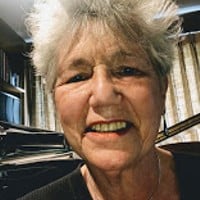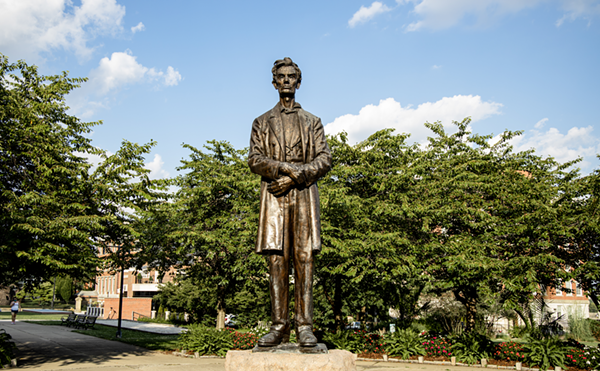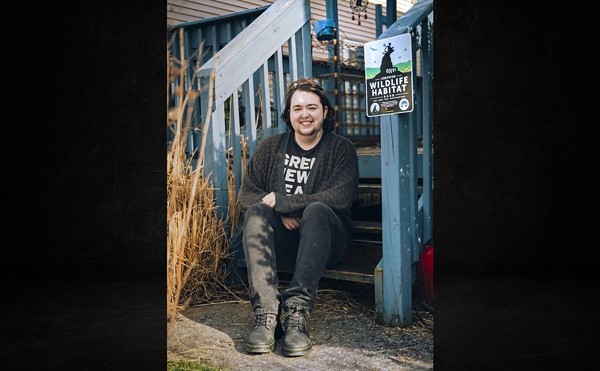A
n intense father-daughter relationship is at the heart of Verdi’s opera Rigoletto, which opens Cincinnati Opera’s summer season with performances Thursday and Saturday. Baritone Stephen Powell makes his role debut as Rigoletto, the acid-tongued jester, and soprano Sarah Coburn is his daughter Gilda.
Rigoletto has a classic case of denial — as jester to the corrupt Duke of Mantua, Rigoletto encourages his boss’ serial seductions and attempts to keep his teenaged daughter sheltered from the world. He’s bound to fail — and he does, on an operatic scale.
Gilda can only leave home to go to church, where she meets the Duke disguised as a poor student. She falls hopelessly in love and acts as impulsively as any adolescent, but with far more tragic results.
The characters resonate with both singers, often with surprising intensity.
“I remember how I felt as a 17-year-old in love,” Coburn says. “Those feelings were so strong they caused me to do things that were totally irrational. For me to justify what Gilda eventually does, I go back to how I felt about my first love. If he lies and cheats, you still can’t get over the feelings of the first kiss or holding his hand. Even after her eyes are opened, Gilda’s feelings are so strong they overwhelm her. She is naive but, as a character, she works for me.”
For Stephen Powell, being a parent helps to humanize Rigoletto, although he admits that sons are a lot different than daughters.
“There’s a gender issue here in terms of how the characters relate to each other,” he says. “Rigoletto can’t face up to his daughter’s questions or her curiosity about the world. Men don’t communicate well when it comes to emotions.
“Guys tend to fly off the handle. The response is, ‘This is what happened, this is what I have to do and I’m going to fix it.’ If what happens to Gilda happened to my daughter, I’d say give me a gun and I’d go after the guy. I told my wife that if we had a daughter, I’d be a mess.”
Although Verdi’s dramatic genius provides ample emotional power for the father-daughter duets, Coburn insists that the music “shows the lack of a deeper relationship; it’s protective and superficial. We don’t divulge feelings.”
She points out that in the famous third act quartet, while Gilda pours out her grief at being betrayed, Rigoletto can only cry for vengeance.
“Establishing the character has a lot to do with the camaraderie you have with your colleagues and Sarah’s sung this many times, so it’s hugely helpful,” says Powell, who has performed with the May Festival and the CSO, and returns to Cincinnati Opera after a 10-year absence. Music Hall’s size intimidates many performers but Powell finds the hall’s acoustics “great for this role. It’s a big hall for a big sing. I’m excited to do this role with this orchestra — they’re great.”
Cincinnati Opera’s production updates the action from 16th-century Mantua to pre-Fascist Italy in the 1920s, a concept that both singers like.
“It’s raw and violent, which Rigoletto is,” Coburn says. Powell adds that director Linda Brovsky transforms the characters into “perfectly believable” personalities.
Standing well over 6 feet tall, Stephen Powell has the physicality of a Mafia capo and the demeanor of your favorite hip uncle. He started out as a pianist and switched to singing when he was 25. Since then, he has sung and performed opera with major orchestras and companies throughout the world … and, most recently, at Great American Ballpark during the seventh inning stretch. Coburn, a veteran of six Rigoletto productions, says Powell’s Rigoletto is “fantastic. It’s perfect!”
Sarah Coburn has been a CO favorite since making her debut here in 2006, captivating audiences with soaring high notes, dazzling coloratura and a simply beautiful, expressive voice. During the 2010-11 season, she sang with the Los Angeles Opera, Seattle Opera and L’Opéra de Montréal, and debuted at the Vienna Staatsoper in Bellini’s La Sonnambula.
Offstage, the petite soprano is easygoing and witty, her Oklahoma drawl punctuated by laughter. Does she sing the national anthem at ball games?
“It scares me to death! I don’t like singing it like an opera singer — I’d rather sound like Whitney Houston,” she says.
Her big aria in Rigoletto is “Cara Nome” (“Beloved Name”), sung as Gilda muses on her secret admirer’s name. Coburn calls “the danged thing” a difficult aria for many reasons: Arpeggios and huge intervals in a tempo that begins as a meditation and then accelerates into a rapid-fire cadenza. She refines it at every rehearsal and every performance.
“I thought I sounded too mature at the last rehearsal, so I’m going to try to shave 10 years off,” she says.
As of next week, both singers will be in their most sought-after venues — home. That’s Tulsa for Coburn and near Philadelphia for Powell. Despite flourishing careers, family comes first for both. Coburn takes her 22-month-old daughter with her when she travels but she relishes being at home with her husband, “cooking in my own kitchen.”
As for Powell?
“I am so looking forward to mowing the lawn and building tree houses,” he says.
Cincinnati Opera presents Verdi’s RIGOLETTO Thursday and Saturday at 7:30 p.m. at Music Hall. Tickets: 513-241-2742 or www.cincinnatiopera.org. Buy tickets, check out performance times and get venue details here.






